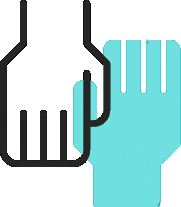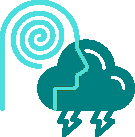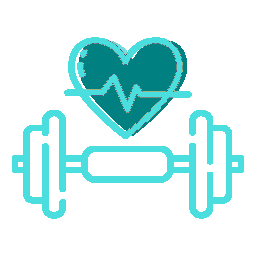Reflexology
into Serenity.
Text/Call us:
639-571-6806 or 306-596-0963
what is Reflexology
Reflexology: The Art of Healing Through Foot and Hand Pressure Points, Balancing Your Body for Enhanced Well-being.

500+
sessions provided

600+
hours invested in the art of reflexology

3
different services offered

175+
clients served
How Reflexology Works
For You
Reflexology stimulates key points on feet and hands to boost healing, reduce stress, and balance the body, enhancing overall well-being.
Reflexology is a therapeutic practice that involves applying pressure to specific points on the feet, hands, or ears. These points are believed to correspond to different parts of the body, based on reflexology maps. The core idea behind reflexology is that stimulating these points can affect the organs and systems they correspond to, promoting relaxation, improving circulation, reducing pain, and supporting overall health and wellness.
Here’s a brief overview of its key aspects:
- History and Origins: Reflexology has roots in ancient civilizations like Egypt and China, but the modern form was developed in the early 20th century. It was popularized in the West by Eunice Ingham in the 1930s.
- Technique: The reflexologist applies pressure using their thumbs, fingers, to specific reflex points. Each session typically lasts between 30 to 60 minutes.
- Theory: It’s based on the theory that these reflex points are connected to various organs and body parts through energy channels. Stimulating these points is thought to improve the flow of energy and facilitate balance in the body.
- Benefits: While reflexology is not a substitute for medical treatment, it is often used as a complementary therapy. Benefits can include stress reduction, pain relief, improved circulation, and support for better overall health.
- Uses: People often turn to reflexology for relaxation, stress relief, and to address specific issues like headaches, digestive problems, and chronic pain.
It’s important to note that while many people find reflexology relaxing and beneficial, its effectiveness and the extent of its benefits can vary from person to person. As with any complementary therapy, it’s recommended to consult with healthcare professionals for any specific health concerns
Reflexology helps reduce stress primarily through relaxation and the promotion of balance in the body’s systems. Here’s how it works:
- Stimulation of the Nervous System: Reflexology involves applying pressure to specific points on the feet, hands, or ears. This stimulation can help to calm the nervous system, leading to a reduction in stress levels. It’s believed that these reflex points correspond to different body organs and systems, and stimulating them can have a positive impact on your overall well-being.
- Increased Blood Circulation: Improved blood circulation can help in more efficient oxygen and nutrient delivery to body cells. This enhanced circulation can help in reducing the symptoms of stress and promoting a sense of well-being.
- Release of Endorphins: The pressure applied during reflexology can lead to the release of endorphins, the body’s natural feel-good hormones. Endorphins are known to reduce stress and induce feelings of relaxation and happiness.
- Reduction of Muscle Tension: Reflexology can help in relieving muscle tension in different parts of the body. As the body relaxes, stress levels often decrease.
- Improvement in Sleep Quality: Stress can negatively impact sleep quality, and vice versa. Reflexology can promote better sleep, which is crucial for stress reduction and overall health.
- Mindfulness and Relaxation: The process of reflexology can be very relaxing and meditative, offering a break from the stressors of daily life. This relaxation response is a counterbalance to the stress response and can be a significant factor in reducing stress.
- Holistic Approach: Reflexology treats the body as a whole, rather than targeting specific symptoms alone. This holistic approach can lead to a greater sense of balance and calmness.
It’s important to remember that while reflexology can be an effective tool for managing stress, it should not replace conventional medical treatments. It’s best used as a complementary therapy alongside other stress management techniques and medical advice.
Yes, reflexology can potentially improve sleep. Its effectiveness in enhancing sleep quality can be attributed to several factors:
- Relaxation Response: Reflexology promotes relaxation, which is key in preparing the body for restful sleep. By reducing stress and calming the mind, it helps create the right conditions for falling asleep more easily.
- Balance in the Nervous System: It can help balance the nervous system by stimulating the parasympathetic nervous system, which is responsible for the body’s ‘rest and digest’ functions. This can lead to a more relaxed state, conducive to sleep.
- Reduction of Pain and Discomfort: For those who have difficulty sleeping due to pain or discomfort, reflexology can help by alleviating these symptoms. Less pain can contribute to better sleep quality.
- Improved Circulation: Enhanced blood circulation can promote more effective delivery of oxygen and nutrients to cells, which can have a positive impact on overall health and potentially improve sleep.
- Hormonal Regulation: Reflexology might help in balancing hormones that affect sleep, like cortisol (the stress hormone) and melatonin (the sleep hormone).
- Mental Clarity and Emotional Release: The therapy can provide mental clarity and emotional release, which are beneficial for individuals who have sleep issues due to emotional stress or overthinking.
While many people report improved sleep after reflexology sessions, it’s important to note that individual responses can vary. Also, it’s not a guaranteed or immediate solution for sleep disorders. If sleep problems persist, it’s advisable to consult a healthcare professional to rule out underlying conditions. Reflexology can be used in conjunction with other treatments and lifestyle changes recommended by health professionals for better sleep.
Absolutely. Reflexology can be effective in managing various types of pain, including headaches, migraines, and muscle tension, by addressing the underlying stress and improving circulation.
Reflexology is generally considered safe for most people when performed by a trained practitioner. However, like any therapy, it can have some potential side effects, especially for certain individuals or in specific situations. It’s important to be aware of these to ensure a safe and beneficial experience:
- Temporary Discomfort: Some people may experience mild soreness or discomfort during or after a reflexology session, especially if there’s a particular area of tension or imbalance in the body.
- Emotional Responses: Reflexology can sometimes release stored emotions or cause emotional reactions, such as crying or feeling overwhelmed. This is generally considered a part of the healing process.
- Tiredness or Fatigue: Some individuals may feel tired after a session, which is usually a sign of the body’s relaxation response and detoxifying process.
- Increased Urination or Bowel Movements: As reflexology can stimulate the body’s systems, including the digestive and excretory systems, there might be a temporary increase in urination or bowel movements.
- Headaches: In rare cases, individuals may experience headaches following a session, possibly due to detoxification or tension release.
- Lightheadedness: Some people may feel lightheaded or dizzy post-session, which is typically a brief and mild reaction.
- Aggravation of Symptoms: Occasionally, existing symptoms may seem to worsen temporarily after reflexology. This is often referred to as a “healing crisis,” where the body’s healing process intensifies symptoms before improving.
For certain individuals or conditions, reflexology may not be recommended, or it should be approached with caution:
- Pregnant women, especially in the first trimester, should consult with a healthcare provider before undergoing reflexology.
- People with foot injuries, infections, or certain chronic conditions like osteoarthritis of the foot or ankle, or severe vascular disease, should seek medical advice before trying reflexology.
- Those with heart conditions, epilepsy, or diabetes should also consult their doctor before starting reflexology treatments.
It’s always best to discuss with a qualified reflexology practitioner and a healthcare provider about any concerns or existing health conditions before starting reflexology treatments
The frequency of reflexology treatments can vary depending on individual needs, goals, and responses to the therapy. There is no one-size-fits-all recommendation, but here are some general guidelines to consider:
- Initial Phase: If you’re starting reflexology for a specific issue (like stress, pain, or a health condition), it’s common to have more frequent sessions at the beginning. This could be once a week or even twice a week for the first few weeks.
- Assessment of Response: After the initial phase, the frequency can be adjusted based on how your body responds to the treatments. Some people might experience significant benefits quickly, while others may need more time.
- Maintenance Phase: Once your initial goals are met, you might move into a maintenance phase with less frequent sessions, such as once every two weeks or once a month. This helps to maintain the benefits and support overall well-being.
- Personal Schedule and Budget: Your schedule and budget are also important considerations. Reflexology should be a stress-relieving, not stress-inducing, activity.
- Consultation with Practitioner: A qualified reflexologist can provide guidance based on your specific situation. They can recommend a treatment plan that aligns with your health goals and needs.
- Listen to Your Body: It’s essential to listen to your body and adjust the frequency of sessions accordingly. If you feel great benefits from regular sessions, you might choose to continue at a more frequent pace.
Remember, reflexology is often used as a complementary therapy, and it’s important to continue any other medical treatments or lifestyle practices recommended by your healthcare provider. Regular communication with both your healthcare provider and reflexologist will ensure the best personalized care plan for you.
About Me – White Sunflower Reflexology:
Welcome to the world of reflexology at White Sunflower Reflexology, where each treatment is provides relaxation.
A bit about me: I bring a five-year journey in reflexology, certified with the Reflexology Association of Canada (RAC) as a RCRT. I specialize in foot and hand reflexology. I am an expert in foot and hand reflexology, continuously advancing my skills with courses and integrating holistic practices like iridology and sound healing. If your not sure about reflexology, I am happy to have a further discussions about the benefit reflexology offer.
Contact me at 306-596-0963 / 639-571-6806
In-person service at the client's home.
White Sunflower Home Reflexology: If you have mobility issues or just feel more comfortable having a reflexology session in your home – Call to arrange a home visit
Call to arrange
Regina
Regina Beach
Text/Call us:
639-571-6806 or 306-596-0963
Still not sure what Reflexology can do? Book a Consult Appointment Today!

Stress Reduction
Reflexology helps to alleviate stress and promote relaxation by calming the nervous system.

Improved Circulation
Regular reflexology sessions can enhance blood flow, improving oxygen and nutrient delivery to body cells.

Pain Relief
It can be effective in reducing pain, especially related to migraines, headaches, and muscle tension.
Improve Your Mental Fitness
Individual Therapy
-
Discovery Session
-
Evaluation Session
-
One-on-One Session
-
Another Feature
Group Therapy
-
Up To 4 Adults
-
Another Feature
-
One-on-1 Session
-
Discovery Session
-
Evaluation Session
-
Yet Another One
Child Therapy
-
Discovery Session
-
Evaluation Session
-
One-on-One Session
-
Another Feature
Our Unique Approach





